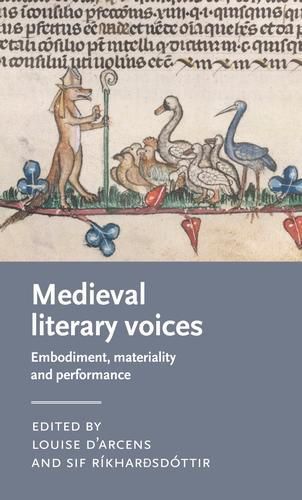Readings Newsletter
Become a Readings Member to make your shopping experience even easier.
Sign in or sign up for free!
You’re not far away from qualifying for FREE standard shipping within Australia
You’ve qualified for FREE standard shipping within Australia
The cart is loading…






Voice is a fleeting physical phenomenon that leaves behind traces of its existence. Medieval literary voices offers a wide-reaching approach to the concept of literary voices, both the vanished authorial ones and the implicit textual ones. Its impressive lineup deepens our understanding of how literary voices evoke the elusive voices lurking beyond the text, capturing the absent authorial voice, the traces of scribal voices and the soundscape of the uttered text. It explores multiple dimensions of medieval voice and vocalisations, and the interactions between literary voices and their authorial, scribal and socio-political settings. It contends that through the theorizing of literary voices we can begin to understand the ways in which medieval voices mediate or proclaim an embodied selfhood or material presence, how they dictate or contest moral conventions, and how they create and sustain narrative soundscapes. – .
$9.00 standard shipping within Australia
FREE standard shipping within Australia for orders over $100.00
Express & International shipping calculated at checkout
Voice is a fleeting physical phenomenon that leaves behind traces of its existence. Medieval literary voices offers a wide-reaching approach to the concept of literary voices, both the vanished authorial ones and the implicit textual ones. Its impressive lineup deepens our understanding of how literary voices evoke the elusive voices lurking beyond the text, capturing the absent authorial voice, the traces of scribal voices and the soundscape of the uttered text. It explores multiple dimensions of medieval voice and vocalisations, and the interactions between literary voices and their authorial, scribal and socio-political settings. It contends that through the theorizing of literary voices we can begin to understand the ways in which medieval voices mediate or proclaim an embodied selfhood or material presence, how they dictate or contest moral conventions, and how they create and sustain narrative soundscapes. – .